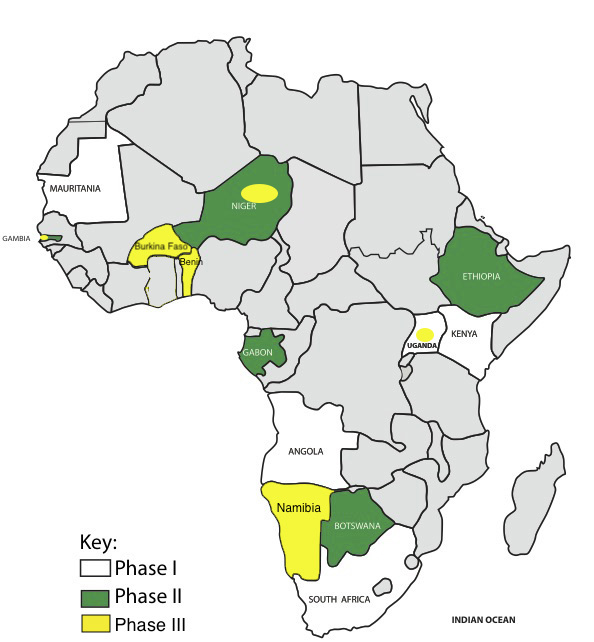About CTCA
Centre for Tobacco Control in Africa
CTCA was established in July 2011 by WHO, with funding from the Bill and Melinda Gates Foundation (BMGF). The Centre is mandated to provide technical and institutional support to governments in Africa in the areas of policy formulation, legislation and enforcement of tobacco control, as well as building and sustaining the institutional capacity for tobacco control. This mandate is exercised through offering technical, institutional and cross sector support for tobacco control at national and regional levels. The establishment of CTCA followed the endorsement of the WHO FCTC in 2003 and subsequent ratification of the same by the member countries. The WHO first called for the establishment of a regional centre of excellence to spearhead tobacco control in Africa that would focus on capacity support to countries; which was supported in a stakeholders’ Consultative Meeting on Regional Capacity Building for Tobacco Control in Africa, Accra Ghana, in June 2008.
CTCA was established under the WHO/Tobacco Free Initiative (TFI) Service Agreement and entrusted with the responsibility of supporting governments in African countries to meet their obligations under the WHO-FCTC. Initially, , the Centre collaborated with WHO in the capacity assessments of the first target countries (Uganda, Mauritania and Angola) to identify needs and opportunities for capacity building in tobacco control. In the early stages of the Centre, the stakeholders articulated the vision of a Centre for tobacco control in Africa as a new, innovative and systematic approach to support Governments in Technical, Institutional and cross-sector areas of TC. In line with the Geneva consensus, Technical aspects include good practices, lessons learned; advocacy and technical toolkits, norms and guidelines. Institutional aspects concerning national and sub-regional resources, including human resource capacity and a pool of experts, and management capacity, infrastructure, internal and external funding and finally cross-sector and cross-country implying networking and partnership building for collaboration that is multi-sectoral and multidisciplinary, at both the national and subnational levels
CTCA Strategic Objectives
SO1
To strengthen the capacity of countries in Africa to formulate and implement FCTC compliant programs
SO2
To promote evidence-based tobacco control policy formulation and program implementation
SO3
To mobilize human, material and financial resources for sustainable tobacco control in Africa
SO4
To promote partnerships for tobacco control at national, regional and international levels
SO5
To enhance CTCA’s ability to support capacity development in tobacco control
CTCA’s strategic stance is best summarized as “an African Centre for tobacco control mandated to develop capacity for African governments to spearhead tobacco control initiatives, through establishment of national tobacco control programmes, development of tobacco control laws, policies and provision of evidence-based information to support tobacco control programmes”. Considering the current status of the Centre and its future aspirations, the fundamental trajectory to achieving this positioning is resident in the following (a) transiting from capacity building to capacity development, (b) providing strategic tobacco control information (c) mobilizing significant resources to support tobacco control programming and building and sustaining beneficial partnerships for tobacco control .

